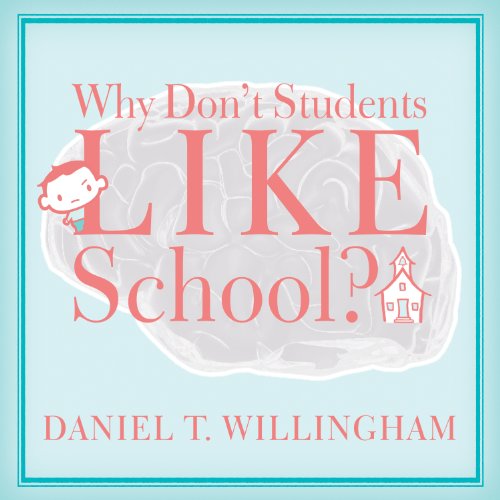
Why Don't Students Like School?
A Cognitive Scientist Answers Questions About How the Mind Works and What It Means for the Classroom
Impossibile aggiungere al carrello
Rimozione dalla Lista desideri non riuscita.
Non è stato possibile aggiungere il titolo alla Libreria
Non è stato possibile seguire il Podcast
Esecuzione del comando Non seguire più non riuscita
Ascolta ora gratuitamente con il tuo abbonamento Audible
Acquista ora a 21,95 €
-
Letto da:
-
Paul Costanzo
A proposito di questo titolo
Kids are naturally curious, but when it comes to school, it seems like their minds are turned off. Why is it that they can remember the smallest details from their favorite television programs, yet miss the most obvious questions on their history test? Cognitive scientist Dan Willingham has focused his acclaimed research on the biological and cognitive basis of learning and has a deep understanding of the daily challenges faced by classroom teachers. This book will help teachers improve their practice by explaining how they and their students think and learn - revealing the importance of story, emotion, memory, context, and routine in building knowledge and creating lasting learning experiences.
In this breakthrough book, Willingham has distilled his knowledge of cognitive science into a set of nine principles that are easy to understand and have clear applications for the classroom. Some examples of his surprising findings are:
- "Learning styles" don't exist. The processes by which different children think and learn are more similar than different.
- Intelligence is malleable. Intelligence contributes to school performance and children do differ, but intelligence can be increased through sustained hard work.
- You cannot develop "thinking skills" in the absence of facts. We encourage students to think critically, not just memorize facts. However, thinking skills depend on factual knowledge for their operation.
Why Don't Students Like School is a basic primer for every teacher who wants to know how their brains and their students' brains work and how that knowledge can help them hone their teaching skills.
©2009 Daniel T. Willingham (P)2011 Tantor

